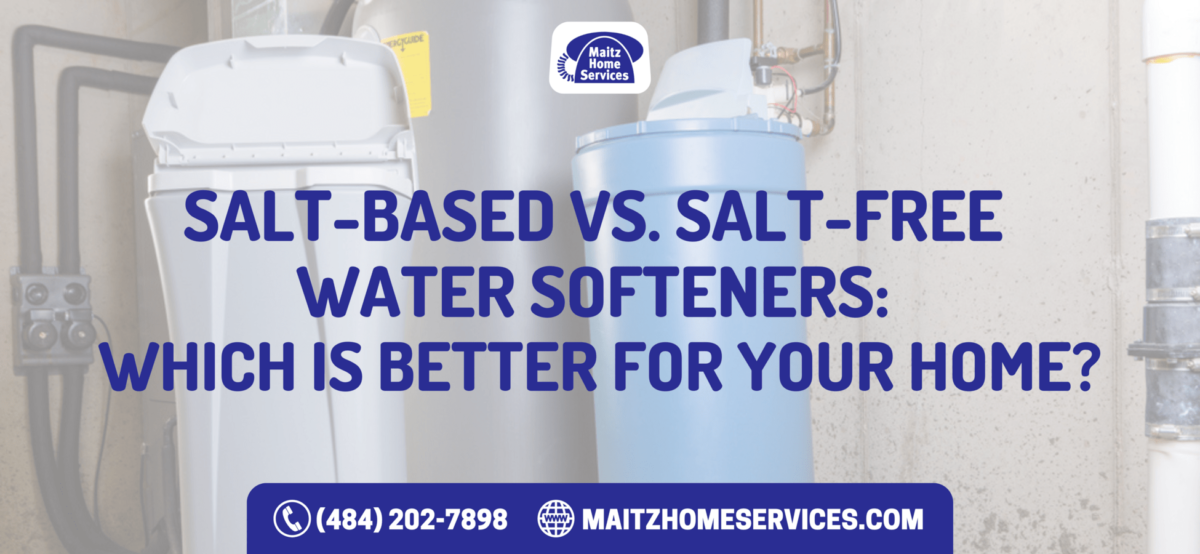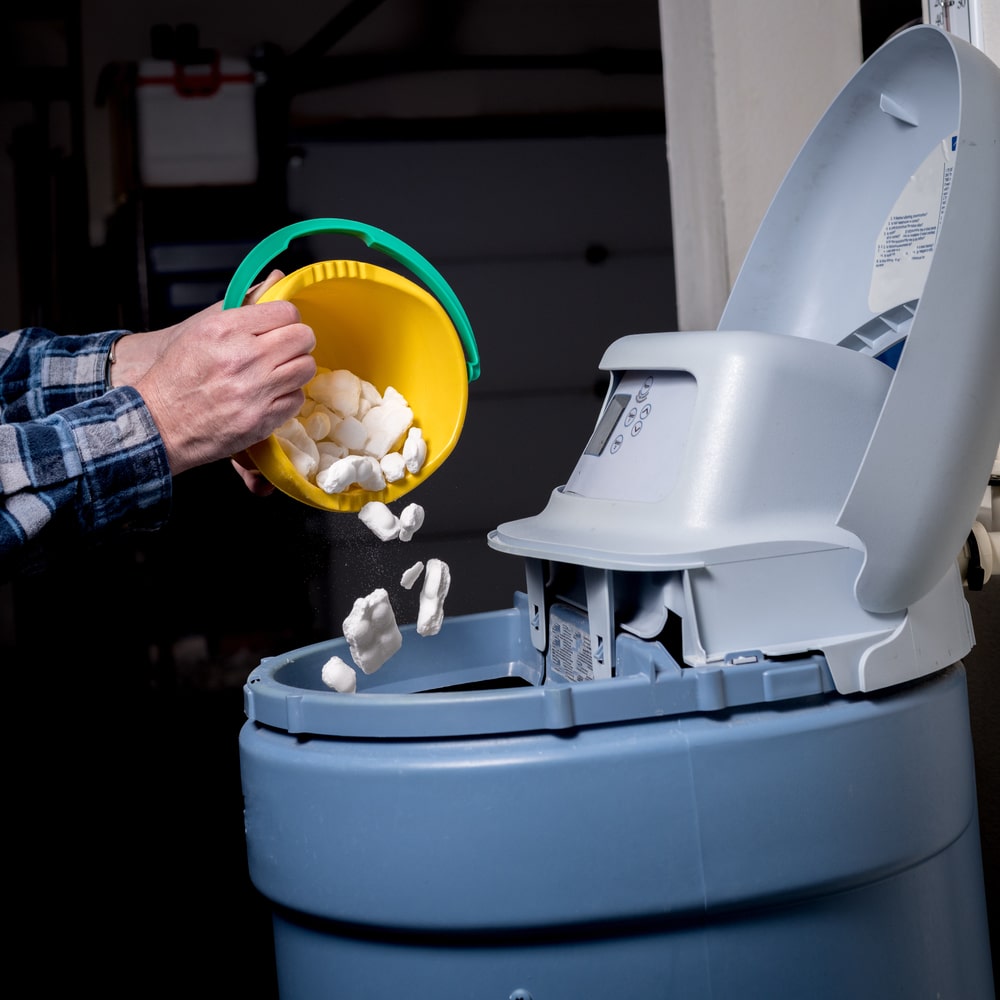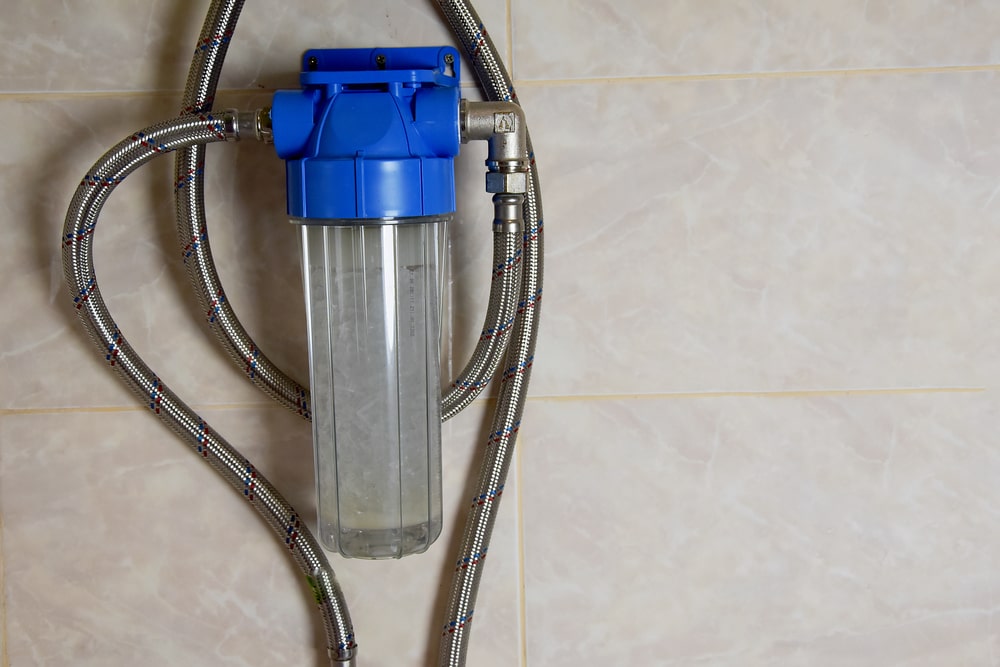
Water softeners remove mineral deposits—specifically calcium and magnesium—from your home’s water supply. This process leaves your skin, clothes, and dishes looking and feeling cleaner than ever before. Water softeners also increase the efficiency and longevity of your household appliances.
If you want to enjoy these benefits, it’s time to invest in a quality water softener. Keep reading to determine which water softener type is better for your home.
Table of Contents
What Is a Salt-Based Water Softener?
A salt-based water softener has two water tanks.

- Resin tank: contains resin beads that remove mineral particles
- Brine tank: contains a saltwater mix
This system removes minerals through an ion exchange process. Here’s how it works:
- Hard water enters the resin tank, where resin beads capture mineral particles from it.
- Saltwater from the brine tank replaces contaminated water in the resin tank.
- Once the water softens, both the contaminated water and the saltwater are flushed out of the system.
Pros
Here are the top six benefits of a salt-based water softener:
- Fully removes harsh minerals
- Provides a cleaner, softer water supply
- No more mineral deposits on tubs, sinks, toilets, and appliances
- Softer, healthier hair and skin
- Longer lasting appliances
- Longer lifespan
Cons
The main drawbacks of a salt-based water softener include:
- A higher upfront cost
- More wasted water
- More required maintenance (i.e. cleaning the resin bed and refilling the brine tank with salt)
- More storage space required
What Is a Salt-free Water Softener?
Rather than softening hard water, salt-free water softeners condition—or neutralize—it. Unlike salt-based water softeners, they only contain one water tank and feature a Template Assisted Crystallization (TAC) process.

- The minerals in hard water crystallize
- The crystallized minerals don’t stick to your plumbing pipes or appliances, meaning minimal residue is left behind
Pros
The main pros of salt-free water softeners include:
- Greater affordability
- Easy installation
- Minimal maintenance (i.e. only changing a filter once annually)
- No wasted water
- No electricity required
- Lower monthly water and energy bills
- No salt content in your water supply
- Less storage space required
Cons
Consider the top three drawbacks before investing in a salt-free water softener:
- Doesn’t eliminate the effects of hard water
- Might not remove harsher contaminants, such as chlorine or lead
- Has a shorter lifespan
Differences Between Salt-based vs. Salt-free Water Softeners
Here are the main differences between salt-based vs. salt-free water softeners.
Salt-based
- Utilizes salt in an ion exchange process
- Softens hard water
Salt-free
- Utilizes TAC
- No salt necessary
- Neutralizes hard water but doesn’t soften it
Which Salt-Based Water Softener or Salt-Free Water Softener Is Right for Your Home?
When determining whether a salt-based or salt-free water softener is better for your home, ask yourself these five questions.
Do you want to remove harsh minerals from your water supply?
- Yes: salt-based
- No: salt-free
Are you okay with increased salt content in your water supply?
- Yes: salt-based
- No: salt-free
Is budget a priority?
- Yes: salt-free
- No: salt-based
Do you have ample time to perform system maintenance?
- Yes: salt-based
- No: salt-free
Do you want your water to have a smooth texture?
- Yes: salt-based
- No: salt-free
Reliable Water Softener Solutions in Allentown, PA
Is hard water a problem in your home? Schedule a water softener maintenance, repair, or installation with Maitz Home Services. With the help of a licensed plumber, you’ll enjoy soft skin and spot-free dishes for years to come. We’ll even perform a free water analysis. Contact us today to improve your water supply.

